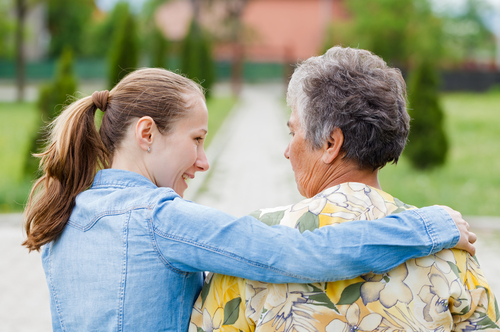
5 minutes
How are helping professionals coping in the waning days of the pandemic? Signs of burnout are everywhere. One in three nurses reportedly plan to leave their jobs. Physicians, especially hospitalists, are wracked by moral injury. Behavioral health workers are being crushed by the press of people seeking help for depression, anxiety, and substance use.
Not everyone is hurting, though. During a virtual speaking engagement last week for 20 middle-aged black women who work for an aging services agency as senior companions for homebound older adults, I asked them how they kept themselves going while providing hands-on care and friendship for sick, isolated, and often cognitively impaired older people. The high stress of their work had been compounded in the past two years by losing many clients to COVID. When I asked the senior companions if they were grieving, a long silence ensued. Then, one of the companions made light of those feelings. Another expressed her gratitude for the privilege of being a helper.
“I go to the homes of my clients and do the work,” she said. “I have this old Japanese woman. She teaches me origami and Japanese cooking. We cook together. I tell her about my family.” She put her experience in a personal context by explaining she had had a difficult time growing up and that her clients sometimes became stand-ins for the parents she never knew. She added with emotion, “The Japanese woman has become like family to me. Almost like a mother.”
Like a mother. She was describing a mutually helpful relationship that had transcended the merely professional. Simple, no? Be neighborly and loving and genuinely connect. Make people in need feel cared for and that they matter. Perhaps someone in charge of her senior companion program had advised her to give generously of herself and to graciously receive all her clients offered in return. Perhaps, with her limited professional training, she had had to rely on her instincts as a warm, caring person and just knew. It wasn’t as if COVID hadn’t affected her.
Strip away practices, requirements, and policies and you have the most robust therapeutic variable ever proven in the research literature—a positive, supportive relationship
She missed the clients she lost during the pandemic and thought of them often. She told us she’d lost an uncle, too, who she said had been vital in his nineties. But she still felt compelled to seek connection with the many other homebound older adults who otherwise are languishing alone in small apartments and worn-out houses. For their sake and her own, she needed to continue to be there with them, smelling the smells of their kitchens, kidding around, and straightening out their bedsheets.
I wasn’t surprised by what she said—but I was inspired. We learn about the power of relationship-based care at the beginning of our professional training when we are green and awkward and unsure of ourselves. Our first step toward becoming capable healers is to learn reflective listening, clarifying statements, and empathic statements to create powerful therapeutic alliances. But then, with the many steps that follow, we layer atop this relational spark the exigencies of evidence-based practices and facility-based workflows. If you live in the policy world, as I do nowadays, you add on the latest CMS directives and shifts in state and insurance compliance requirements. The relationship between a healer and a recovering client—or perhaps a dying client who will never recover—is often obscured.
Doing the work, however, is only partially about implementing empirically supported protocols with fidelity. As the senior companion reminded me, it’s more about swapping recipes and sharing family stories. Strip away practices, requirements, and policies and you have the most robust therapeutic variable ever proven in the research literature—a positive, supportive relationship. That’s our best bet for helping our clients reemerge from a difficult two-year ordeal. It’s also the best chance for helping professionals to revive the deeply felt purpose that once propelled them to care.

Leave a Reply